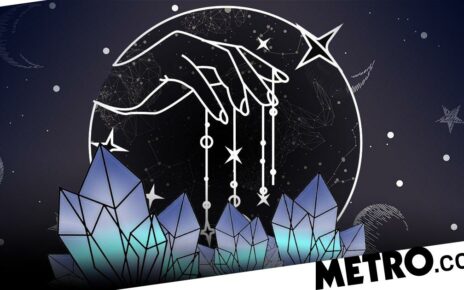Actors, producers, directors, executives, writers and more joined together to discuss the ins and outs of their TV programs in a stacked season of small-screen excellence for the 2022 Variety Virtual TV Fest. From shows moving to new streaming platforms to the boom in true crime series on television, there was a lot to discuss and the biggest names behind some of the shows this season covered it all.
Here, Variety lists the 10 biggest takeaways from this year’s panels.
Marlon Wayans Thinks Comedy Is Better the Deeper it Goes
For his recent HBO Max comedy special “You Know What It Is,” popular comic Marlon Wayans gets more personal than ever, discussing his experiences learning about his daughter’s sexuality, getting caught cheating and many other mistakes he’s made throughout his life. Although he said it was uncomfortable for him to discuss these topics, Wayans maintains that the special was stronger for it.
“As a comedian it’s layers to an onion, right? The more you do it, the more you get deeper, the closer you get to your tears and the resolve of whatever life pains you got, I think the funnier you become. So you have to take a deep dive,” Wayans said during a HBO Max series roundtable. “I’m able to go in there and find what’s funny about it. And my children’s mother, and my daughter and my son, laughed so hard at the fact that I’m willing to explore that. They’re like, ‘Yo, you’re crazy.’ But I find that’s my therapy. And I find that being able to live that vulnerable on a stage and be that truthful, I think that’s where comedy lives.”
The “Bosch” Move to Freevee is Going Smoothly
In celebration of the return of “Bosch” through its spinoff series “Bosch: Legacy,” original book author Michael Connelly, executive producer Henrik Bastin and cast member Mimi Rogers joined Variety for a Meet the Makers panel. During the panel, Bastin discussed the opportunity for the show to acquire new fans now that it has moved to a free streaming platform like Amazon Freevee.
“When Freevee reached out to us and explained their business model, that they’re going to be ad-supported … Amazon Prime, you are in a locked universe, not everyone can afford it or know what it is. So, being able to offer this to anyone who wants to watch it is great,” Bastin said. “What I am excited about, and Michael is, the opportunity to actually create a universe of ‘Bosch.’ Here, suddenly, we have the opportunity to in success and being creatively good at what we’re doing, broaden Michael’s universe even bigger, which is super exciting.”
Reality Television Can Create Generational Connections
As president of unscripted and alternative at Warner Bros. Television, Mike Darnell has supervised numerous hits, including the juggernaut “Bachelor” franchise. In a keynote conversation with Variety TV editor Michael Schneider, Darnell reflected on how part of the reason reality television can run for a long time is due to the generational connections it creates with its audience.
“These shows, there’s a fondness for them that is passed on generationally. So in ‘Bachelor,’ my daughter when I started here was 16, and not into ‘The Bachelor.’ And then all of a sudden, four years in, her and her friends started watching it. And it was clear to me that their mothers had been watching the show, and it’s a pass-along generational thing,” Darnell said. “I think that’s true of all these shows, that it’s something that you sat down and watched as a family. And they’re almost never ending, and never dying television, where it constantly refreshes itself. It’s brand new every season. And that’s one thing that scripted can’t do.”
Documentary Filmmaking Thrives on Scary Conversations
For W. Kamau Bell, it’s the tough conversations that mean the most. In a discussion with some of the creators behind this year’s top TV documentaries, Bell, the director behind “We Have to Talk About Cosby,” opened up to Variety senior editor Emily Longeretta about the lessons that he learned throughout the process of creating the docuseries.
“America in many ways is broken,” Kamau Bell explained. “And one of those ways that it is broken is how it deals with survivors of sexual assault and rape. And if anything, I hope this docuseries is just another, sort of, ringing the alarm that we need to do this better from the ground up. This is not something we can fix slightly. And also, no matter how scary or difficult a conversation seems as you enter into it, you still need to probably have that conversation. And just because you have it, doesn’t mean it’s going to necessarily get less scary or difficult. But it is worthy.”
Actors and Detectives are More Similar Than You May Think
Octavia Spencer, who served as executive producer and starred in the true crime series “Truth Be Told,” sees her role as an actor similar to that of a detective. In a panel conversation with Variety co-editor in chief Cynthia Littleton, Spencer revealed that engaging with and searching for the truth of a person is fundamental to how an actor portrays a character.
“I found it very interesting, and one of the things that I was excited about, was how Nichelle was able to put journalism at the center of the story when it was more sensationalized in the book,” she explained. “And that’s one of the things that I, as an actress, grapple with every day, the sensationalism. And I love that Nichelle wanted the show to be called ‘Truth Be Told’ because, at the end of the day, our job as actors, we’re detectives. We have to figure out a way into these characters and to tell their truths. And for me, it is always, you get to toe up to the line but never really cross it.”
Reality TV Is an Opportunity to Showcase Visibility
When asked about making political statements through reality television, Stephen Warren, producer of the drag makeover docuseries “We’re Here,” said his show isn’t “inherently political.” In a conversation with senior artisans editor Jazz Tangcay, Warren explained what role he sees his HBO Max show playing in the political landscape.
“What we are is a show that’s showcasing visibility,” Warren said. “What we’re really trying to emphasize is that, yeah, you can relate with somebody that is a 10-year-old trans girl in Florida. You can relate with someone that is a native Hawaiian homeless man. You can relate with all of these people because once you get into their lives and once you see there is nothing that is different between you and them other than their own situations, you’re all human beings. That’s how I’m hoping that all of us are contributing to society — by increasing the empathy level.”
Sometimes, Non-Linear Storytelling Is the Way to Go
In a keynote conversation with Jessica Biel and Michelle Purple of Iron Ocean Productions, the two discussed some of their creative decisions in their collaboration on Hulu’s “Candy,” in which Biel stars as accused killer Candy Montgomery. When asked by Tangcay about the choice to tell the story in a non-linear form, Biel called the method “a nice tool if you do it right. It’s hard to do right, but if you can do it right, it’s effective.”
“Sometimes when you just go linear, you’re just checking the boxes along the way,” Purple said. “And sometimes for the right story being told, that is the way to do it and it should be done. But for ‘Candy,’ when we read originally the first pilot, I couldn’t get enough because she would just tease me with something from the future, but then pull me back into the past, that I needed to learn more to get to this part. So there’s something about [it that] keeps you engaged, drops a little cherry and then pulls it back, that keeps us on our toes.”
VFX Should be an Aide in Storytelling, Rather Than a Distracting Spectacle
From the standpoint of Jason Zimmerman, lead visual effects supervisor and supervising producer on Showtime’s “The Man Who Fell to Earth,” visual effects should only be used in situations where they need to be used to advance the story. In a discussion with Variety senior TV writer Joe Otterson, Zimmerman emphasized the necessary balance he had to implement to create great visuals that do not impede heavily on a scene.
“Well, I think the challenge always on a show is not to lean too far into the spectacle,” he said. “The point of visual effects is just to aid in the storytelling. That’s always what we are here for. And so to make sure that it was grounded, and always working with production design and what was there practically in order to augment and otherwise help tell the story. But not overpower the shot, not overpower the scene, but to really just aid in helping to tell the story. And, obviously, there’s some sci-fi components to this that you know are going to have to be aided by visual effects. But even in that, I think the point is to stay grounded and not take away from what’s being told, not take away from the performance, not take away from the visuals or the overall story.”
Brand Messaging Is a Constant Priority
Variety digital editor Todd Spangler moderated a panel of television execs to discuss their work using streaming as a marketing tool. During the panel, Discovery Group VP of paid media and global subscriber acquisition Regina Sommese discussed how brand marketing is something the company actively works on for every product, even years after launch.
“When you think about launching a product and a product moving through its life cycle, there can be this notion that you launch this product once, you communicate what the brand promises and then you’re done,” Sommese said. “And I think that notion just simply isn’t the case. It’s a consistent, steady beat of having brand messaging as well as show messaging.”
Telling True Tales Requires Different Approaches for Different Shows
In a roundtable discussion with directors of series including “Winning Time” and “We Own This City,” Antonio Campos, director, EP and writer of “The Staircase,” opened a discussion about his approach to adapting a true story. In conversation with TV editor Michael Schneider, Campos explained the challenge of making a character “more interesting than the real person.”
“One of the things we did was we really didn’t look to cast lookalikes,” Campos said. “It was — let’s find the right person to play this part. Then one of the things that I kind of put out there was like, look, let’s not force anything. Let’s find where you and this person meet and then that’ll be it. Let’s not cross that line. If the real person had blue eyes, an actor would be like, ‘I want those contacts,’ and then we’d go, ‘OK, let’s do the contacts.’ The minute you saw the contacts, you go, ‘This doesn’t work. I’m not connecting to you.’ It doesn’t matter if you don’t have the same color eyes. It doesn’t matter if you’re built the same way. We’re creating a version of that person.”
Source: Read Full Article

